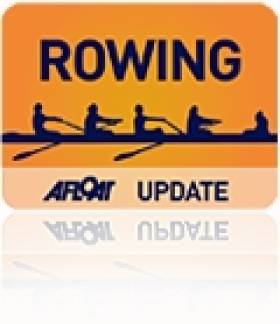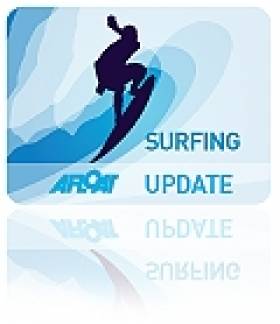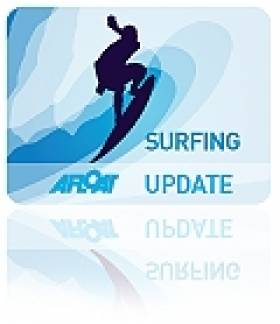Displaying items by tag: injury
Ireland Pair Withdraws From World Cup Rowing
#ROWING: The Ireland women’s pair of Leonora Kennedy and Lisa Dilleen pulled out of the repechage at the World Cup in Lucerne today because of injury. The race gave them a chance to qualify directly for the A Final, but Kennedy has a sore back and, according to Ireland high performance director Morten Espersen, it would have been unwise for her to compete.
Van Gelderen Claims Irish Speed Sailing Title for 2011
#WINDSURFING - Oisín van Gelderen is all but confirmed as Irish Speed Sailing Champion for the second year running.
His national record speed (44.23 knots by 5x10 second average and 43.96 knots over 500m) puts him far ahead of his nearest competition in the rankings.
But his competitive spirit would not let him rest on his laurels.
"Ever since setting that record in February, I have been trying to beat it," he said, "and we had a really good day on Thursday in Dungarvan."
Though he did not beat his averages, he did set a new Irish record for peak speed at 47.89 knots (verification pending).
Van Gelderen dedicated his previous national title win to to the memory of Surfdock founder Alan Harris and Irish 500m speed record holder John Kenny, who both passed away in 2010.
Meanwhile, his Surfdock teammate Noelle Doran has taken the women's title for 2011 with a very impressive set of times for the year.
Her Irish women's peak record of 38.17 knots was complemented by third overall place for 2011 by 5x10 second average and first in the world over 500m.
"I'm so delighted for her," said Van Gelderen. "She had a nasty injury a few years ago, where she dislocated her hip while windsurfing. The resulting nerve damage put a stop to her competing in Waves and Freestyle, where she had multiple national titles."
Mikey Clancy Returns to Windsurfing Tour
Irish windsurfer Mikey Clancy is returning to the Professional Windsurfers' Association World Tour.
Sailing.ie reports that Clancy will compete at the World Cup Wave event in Pozo, Gran Canaria from 5-10 July before moving on to the PWA event in El Medano, Tenerife from 14-20 July.
Clancy has made a good recovery since a serious ankle injury almost ruled him out of a professional career in windsurfing.
Later in the year the PWA tour moves onto Denmark and Germany before the final event takes place in Cape Verde.
For more details see Mikey Clancy's official website HERE.































































